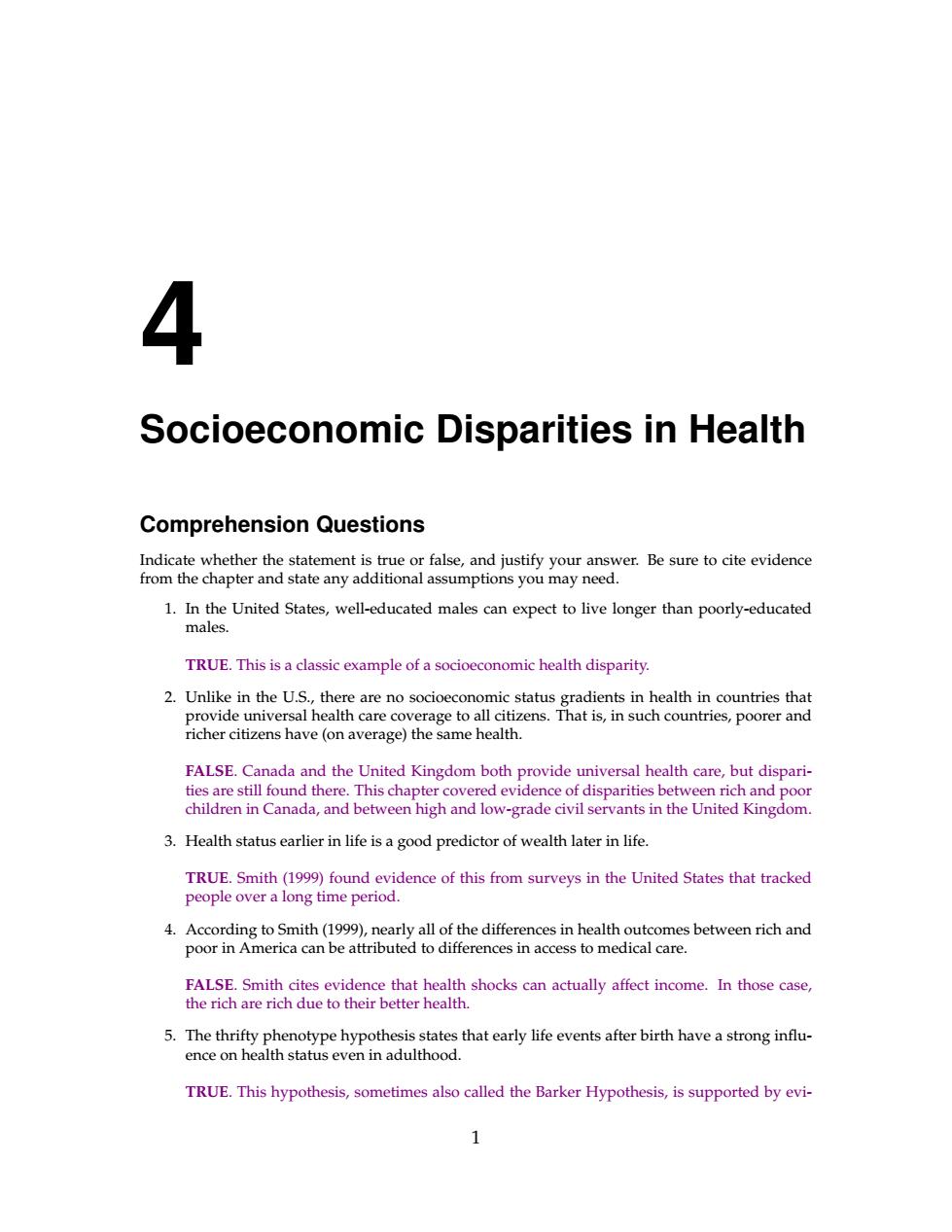正在加载图片...

Socioeconomic Disparities in Health Comprehension Questions 1.In the United States,well-educated males can expect to live longer than poorly-educated males. TRUE.This is a classic example of a socioeconomic health disparity. 2.Unlike in the U.S e health. FALSE.Canada and the United Kingdom both provide universal health care,but dispari- 3.Health statusearlier in life is a good predictor of wealth later in life. TRUE.Smith(1999)found evidence of this from surveys in the United States that tracked people over a long time period. 4.According to Smith(1999),nearly all of the differences in health outcomes between rich and poor in America can be attributed to differences in access to medical care. FALSE.Smith cites evidence that health shocks can actually affect income.In those case the rich are rich due to their better health. 5.The thrifty phenotype hypothesis states that early life events after birth have a strong influ- ence on health status even in adulthood. TRUE.This hypothesis,sometimes also called the Barker Hypothesis,is supported by evi 14 Socioeconomic Disparities in Health Comprehension Questions Indicate whether the statement is true or false, and justify your answer. Be sure to cite evidence from the chapter and state any additional assumptions you may need. 1. In the United States, well-educated males can expect to live longer than poorly-educated males. TRUE. This is a classic example of a socioeconomic health disparity. 2. Unlike in the U.S., there are no socioeconomic status gradients in health in countries that provide universal health care coverage to all citizens. That is, in such countries, poorer and richer citizens have (on average) the same health. FALSE. Canada and the United Kingdom both provide universal health care, but disparities are still found there. This chapter covered evidence of disparities between rich and poor children in Canada, and between high and low-grade civil servants in the United Kingdom. 3. Health status earlier in life is a good predictor of wealth later in life. TRUE. Smith (1999) found evidence of this from surveys in the United States that tracked people over a long time period. 4. According to Smith (1999), nearly all of the differences in health outcomes between rich and poor in America can be attributed to differences in access to medical care. FALSE. Smith cites evidence that health shocks can actually affect income. In those case, the rich are rich due to their better health. 5. The thrifty phenotype hypothesis states that early life events after birth have a strong influence on health status even in adulthood. TRUE. This hypothesis, sometimes also called the Barker Hypothesis, is supported by evi- 1